Battery Test Equipment
Arbin offers charge/discharge battery testing systems ranging from μA single cell applications up to 1MW packs.
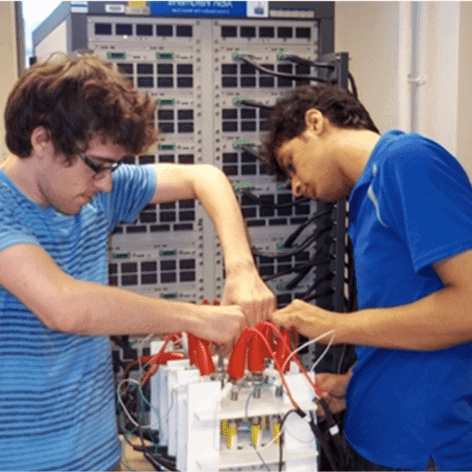
Applications Include
- Coincell, cylindrical, prismatic, & pouch/flat cell testing
- Battery modules and packs of all sizes
- Any battery chemistry including lithium, silicon, sulfur, lead-acid, nickel, & more
- Battery cycling, electrochemical experiments, and advanced real-world simulations
- HPC measurements (coulombic efficiency)
- Electric vehicle battery testing
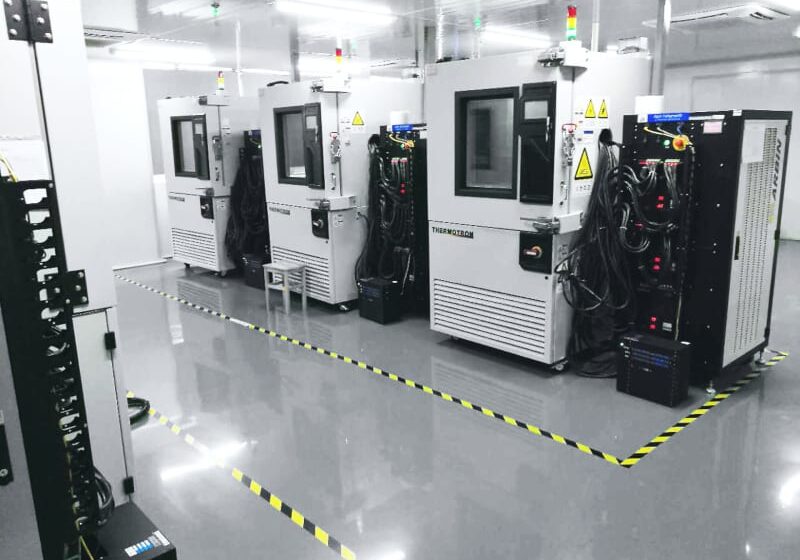
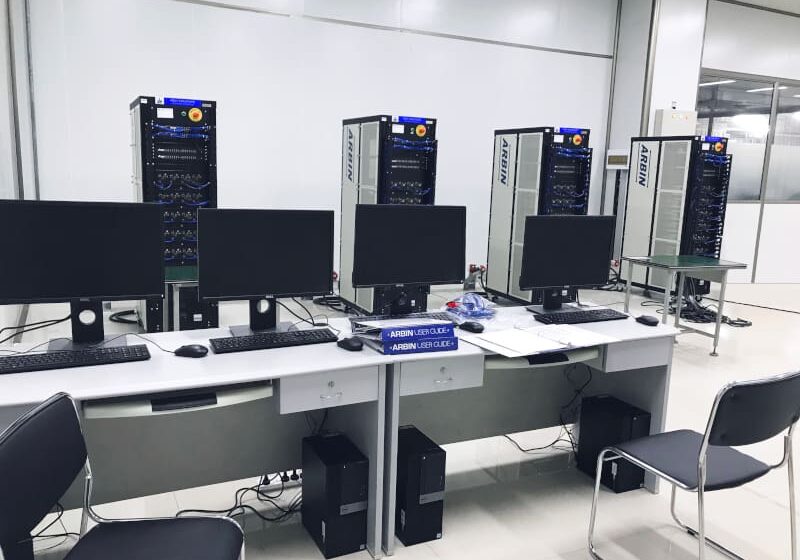
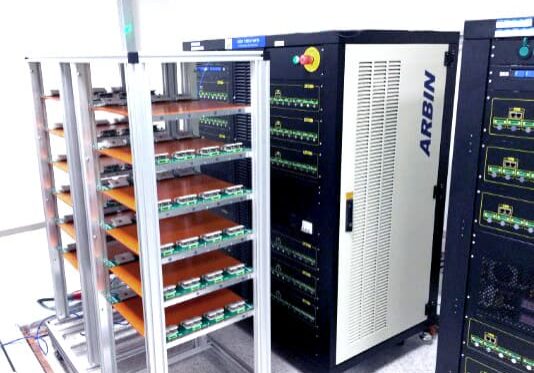
Product Highlights
Measurement Precision
Better than 100ppm precision standard on all LBT models.
High precision CE testing available up to 200A with HTP models.
Resolution
Industry-leading 24-bit resolution.
EIS
High accuracy EIS measurements can be multiplexed for all channels in a multi-channel system using a 3rd party EIS module.
Channel Function
Each testing channel operates fully independent of other channels.
Parallel any number of channels for increased current handling.
Data Logging
Standard data logging rate at 2000 points per second, per system.
High speed pulse testing available.
Circuitry
True bipolar circuitry ensures cross-zero linearity and zero switching time between charge and discharge
Safety
Redundant internal micro-controller dedicated to safety monitoring.
BMS Communication
Communicate with internal battery management system via CANBus or SMBUs protocol.
Auxiliaries
Many auxiliary channels are available such as additional voltage ref electrodes, temperature measurement, chamber control, digital I/O, and more.
Importance of Precision
This plot illustrates the difference between an Arbin battery tester and another leading manufacturer. The first of the two distinct dips in the plot may have been missed using inferior test equipment. While many companies try to sell the same legacy equipment for over a decade, Arbin has been hard at work improving our designs to meet future industry demands. We learned a lot during our three year ARPA-E project to develop high-current high-precision testers, and have implemented this new technology in our LBT, RBT-Cell, and HPS test equipment series. The HPS ultra-high precision systems represent our premium product, but LBT is superior to other standard testers on the market.
Measurement precision is more critical for long‐term battery testing and long‐term battery projections than control accuracy alone. Most other battery testing systems do not correctly specify their precision and/or have relatively poor precision, which hinder the conclusions drawn from results data. Important trends and electrochemical indicators may remain unnoticed; lost in the measurement noise as illustrated at right.
What Affects Test Equipment Precision
Resolution of DAC
Resolution of ADC
Non-linearity of calibration
Short-term drift (temperature)
Long-term drift (material characteristics)
Arbin Test Equipment Improvements
Higher Resolution
Improved Software Algorithms
New Methods of Thermal Management
New Patented Shunt Design
New Method of Time Keeping
New Materials
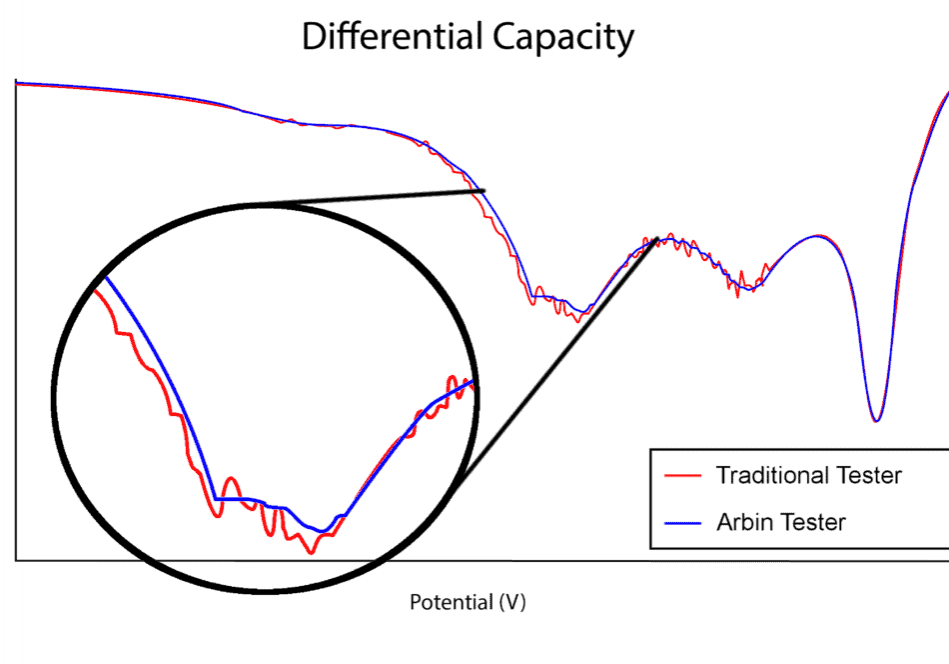
Ready to Build Your Arbin Battery Testing System?
Our hope is that these higher degrees of measurement precision will lead to new discoveries and characterization metrics across the energy storage industry for all organizations, not only those looking at coulombic efficiency as a key indicator.
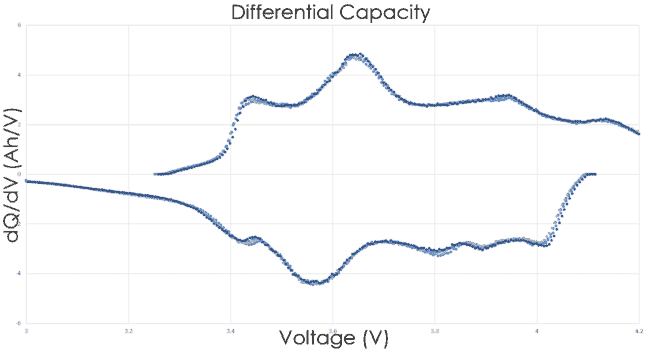
How to evaluate Battery Testing Equipment
Batteries are a critical component of many products, and energy storage plays a very active role in our lives even outside of the research/industry setting. Therefore, selecting the right battery test equipment is an important decision for companies and the individual researchers who are responsible for producing results, whether they are starting small, or at massive scale.
The expert engineers at Arbin have been advancing the benchmark of “state-of-the-art” battery test equipment for over 30 years. We are defined by innovation, from being the first to apply multiple current ranges on a single test channel to more recently being the only company to offer true high-precision testing for high current applications, and supporting “Turbo Mode” with smart battery modules. We continue to learn from our industry partners and work with them on key technology breakthroughs.
The following report shares some of this knowledge using plain terminology and illustrations. Here are five key topics to consider when choosing battery test equipment:
- Hardware – Specifications & Quality of Materials
- Software – Usability and Features
- Data – Logging, Management, and Analysis
- Options – Auxiliary Features and Accessories
- Support – Product Safety and Support
Contact Us Today for a Quote
Complete our contact form to request a quote or learn how battery test equipment from Arbin Instruments can meet your testing requirements.

